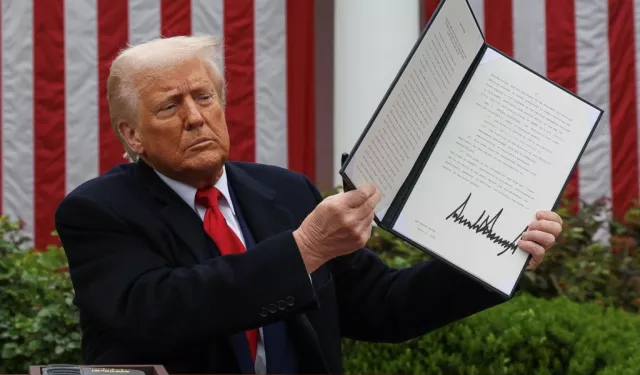The BRICS bloc is forging ahead with its push for local currency trade among members, undeterred by President Donald Trump's recent threats of new 10% tariffs. Economists in Egypt believe the potential duties are unlikely to significantly impact the nation's exports, especially given the strong competitive position of Egyptian products in the American market.
Economist Medhat Nafea contends that Egyptian goods, particularly textiles and apparel, are “strongest in terms of competitiveness in the US market and will remain highly secure.” He points out that competing nations already face far higher tariffs, often ranging from 30% to 50%. Even if Egypt's total duties were to reach 20%, its products would still maintain a substantial competitive edge. Nafea credits the superior quality of Egyptian cotton for the enduring appeal of its apparel and accessories to American consumers.
Trump, on Monday, took to Truth Social to declare his intent to impose an “additional 10% tariff on any country that supports anti-American policies adopted by BRICS,” unequivocally stating there would be “no exceptions.”
De-dollarization drive gains momentum
Despite Trump's assertive stance, BRICS nations are pressing forward with efforts to lessen their reliance on the US dollar and other hard currencies. Egyptian Prime Minister Mostafa Madbouly confirmed yesterday a growing push within the bloc to adopt local currencies for trade, a practice already in motion among several members.
This initiative is a central topic of discussion within the organization, aiming to ease pressure on foreign exchange reserves and foster greater monetary stability for developing nations.
Madbouly explained that this model is particularly effective when there's a relatively balanced trade relationship between countries. This allows for the exchange of goods and services in local currencies without requiring substantial foreign exchange outlays.
Egypt is closely monitoring this development, especially with the recent expansion of BRICS, which opens up more opportunities to implement this model with key trading partners.
The Prime Minister also noted that this system isn't confined to BRICS; several non-member countries have already begun similar practices. He views this as a scalable concept that could become a vital alternative in the global financial system.
The broader implementation of this strategy remains an open discussion, contingent on the success of its initial phases and the evolving landscape of the international economic system.
BRICS leaders unfazed by Trump's warnings
BRICS leaders have swiftly condemned Trump's tariff threats. On Tuesday, Brazilian President Luiz Inácio Lula da Silva denounced the proposed tariffs, stating that his country does not accept any criticism directed at the BRICS summit. The BRICS completely reject what the President of the United States alluded to regarding the possibility of imposing tariffs on the bloc, he said.
“He needs to understand that the world has changed,” da Sliva said, “If he thinks he can impose tariffs on countries, countries can also have the right to do the same.”
Dmitry Medvedev, Deputy Chairman of the Security Council of Russia, interpreted Trump's threats as a reaction to BRICS's expanding influence. “Trump announced that an additional 10% tariff will be imposed on any country that supports BRICS policy. So, we are on the right track,” Medvedev remarked.
